Richard Cromwell (4 October 1626 – 12 July 1712) was the third son of
Oliver Cromwell. He was the second ruling
Lord Protector
of England, Scotland and Ireland,

serving for just under nine months,
from 3 September 1658 until 25 May 1659. After his fall from power, he
was given the unflattering
soubriquet of
Tumbledown Dick by
Royalists.
[1]

Richard was born in Huntingdon on 4 October 1626, the third son of Oliver Cromwell and his wife Elizabeth. Little is known of his childhood. He and his three brothers were educated at Felsted School

in Essex close to their mother's family home. There is no record of him
attending university. In May 1647, he became a member of Lincoln’s Inn. He may have served as a captain in Thomas Fairfax’s lifeguard during the late 1640s, but the evidence is inconclusive.

In 1649 Richard married Dorothy Maijor, daughter of Richard Maijor, a member of the Hampshire gentry. He and his wife then moved to Maijor’s estate at Hursley.
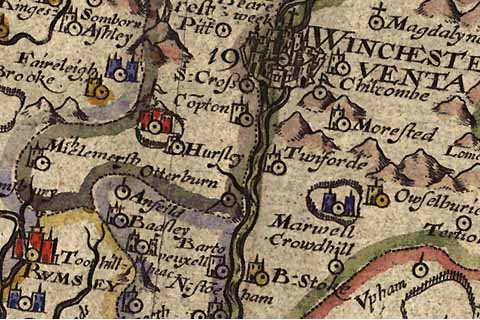
During the 1650s they had nine children, four of whom survived to adulthood. Richard was named a Justice of the Peace
for Hampshire and sat on various county committees. During this period
Richard seems to have been a source of concern for his father, who wrote
to Richard Maijor saying “I would have him mind and understand
business, read a little history, study the mathematics and cosmography:
these are good, with subordination to the things of God. Better than
idleness, or mere outward worldly contents. These fit for public
services, for which a man is born”. He fought in none of the English
civil wars.
In 1653, Richard was passed over as a member of Barebone's Parliament
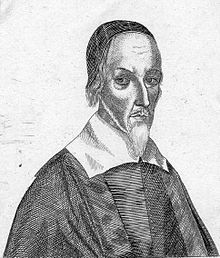
, although his younger brother Henry was a member of it. When his father was made Lord Protector in the same year, he was also not given any public role; however, he was elected to the First Protectorate Parliament as M.P. for Huntingdon and the Second Protectorate Parliament as M.P. for Cambridge University.
Under the Protectorate’s constitution, Oliver Cromwell was required to
nominate a successor, and from 1657 he involved Richard much more
heavily in the politics of the regime. He was present at the second
installation of his father as Lord Protector in June, having played no
part in the first installation. In July he was appointed Chancellor of Oxford University, and in December was made a member of the Council of State.
Oliver Cromwell died on 3 September 1658, and Richard was informed on
the same day that he was to succeed him. Some controversy surrounds the
succession. A letter by John Thurloe
suggests that Oliver nominated his son orally on 30 August, but other
theories claim either that he nominated no successor, or that he put
forward Charles Fleetwood, his son-in-law.
Richard was faced by two immediate problems. The first was the army,
which questioned his position as commander given his lack of military
experience. The second was the financial position of the regime, with a
debt estimated at £2 million. As a result Richard Cromwell's Privy council
decided to call a parliament in order to redress these financial
problems on 29 November 1658 (a decision which was formally confirmed on
3 December 1658). Under the terms of the Humble Petition and Advice, this Parliament was called using the traditional franchise (thus moving away from the system under the Instrument of Government whereby representation of rotten boroughs was cut in favour of county towns).
This meant that the government was less able to control elections and
therefore unable to manage the parliament effectively. As a result, when
this Third Protectorate Parliament first sat on 27 January 1659 it was dominated by moderate Presbyterians, crypto-royalists and a small number of vociferous Commonwealthsmen (or Republicans).

Coat of arms of the Protectorate
The 'Other House' of Parliament – a body which had been set up under the Humble Petition and Advice to act as a balance on the Commons – was also revived. It was this second parliamentary chamber and its resemblance to the 'House of Lords' (which had been abolished in 1649) that dominated this Parliamentary session. Republican malcontents gave filibustering
speeches about the inadequacy of the membership of this upper chamber
(especially its military contingent) and also questioned whether it was
indicative of the backsliding of the Protectorate regime in general and
its divergence from the 'Good Old Cause' for which parliamentarians had originally engaged in Civil War.
Reviving this House of Lords in all but name, they argued, was but a
short step to returning to the Ancient Constitution of King, Lords, and
Commons.

At the same time, the officers of the New Model Army
became increasingly wary about the government's commitment to the
military cause. The fact that Richard Cromwell lacked military
credentials grated with men who had fought on the battlefields of the
English Civil War to secure their nation's liberties. Moreover, the new
Parliament seemed to show a lack of respect for the army which many
military men found quite alarming. In particular, there were fears that
Parliament would make military cuts to reduce costs, and by April 1659
the army’s general council of officers had met to demand higher taxation
to fund the regime’s costs.
Their grievances were expressed in a petition to Richard Cromwell on 6
April 1659 which he forwarded to the Parliament two days later. Yet
Parliament did not act on the army's suggestions; instead they shelved
this petition and increased the suspicion of the military by bringing
articles of impeachment against William Boteler
on 12 April 1659, who was alleged to have mistreated a royalist
prisoner while acting as a Major General under Oliver Cromwell in 1655.
This was followed by two resolutions in the Commons on 18 April 1659
which stated that no more meetings of army officers should take place
without the express permission of both the Lord Protector and
Parliament, and that all officers should swear an oath that they would
not subvert the sitting of Parliament by force.
These direct affronts to military prestige were too much for the army
grandees to bear and set in motion the final split between the
civilian-dominated Parliament and the army, which would culminate in the
dissolution of Parliament and Richard Cromwell's ultimate fall from
power. When Richard refused a demand by the army to dissolve Parliament,
troops were assembled at St. James's Palace.

Richard eventually gave in to their demands and on 22 April, Parliament was dissolved and the Rump Parliament recalled on 7 May 1659.
In the subsequent month Richard did not resist and refused an offer
of armed assistance from the French ambassador, although it is possible
he was being kept under house arrest by the army. On 25 May, after the
Rump agreed to pay his debts and provide a pension, Richard delivered a
formal letter resigning the position of Lord Protector. "Richard was
never formally deposed or arrested, but allowed to fade away. The
Protectorate was treated as having been from the first a mere
usurpation".
He continued to live in Whitehall Palace

until July, when he was forced by the Rump to return to Hursley.

Royalists rejoiced at Richard's fall and many satirical attacks surfaced
in which he was given the unflattering nicknames 'Tumble Down Dick' and
'Queen Dick'.

During the political difficulties of the winter of 1659, there were
rumours that Richard was to be recalled as Protector, but these came to
nothing. In July 1660 Richard left for France, never to see his wife
again. While there he went by a variety of pseudonyms, including “John
Clarke”. He later travelled around Europe, visiting various European
courts. As a visiting Englishman he was once invited to dine with the prince of Conti

who was unaware of who he was. At dinner the prince questioned Richard
about affairs in England and observed – "Well that Oliver, tho' he was a
traitor and a villain, was a brave man, had great parts, great courage,
and was worthy to command; but that Richard, that coxcomb and poltroon,
was surely the basest fellow alive; what is become of that fool? "
Richard replied "He was betrayed by those he most trusted, and who had
been most obliged by his father." Richard departed the following
morning.
During this period of voluntary exile he wrote many letters to his family back in England; these letters are now held by Cambridgeshire Archives and Local Studies at the County Record Office in Huntingdon.
In 1680 or 1681 he returned to England and lodged with the merchant
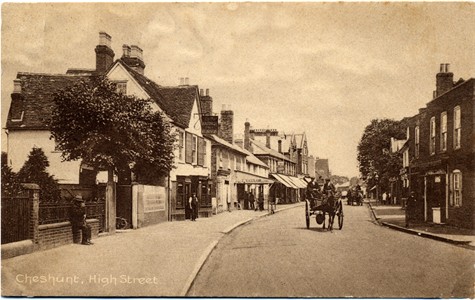
Thomas Pengelly in Cheshunt
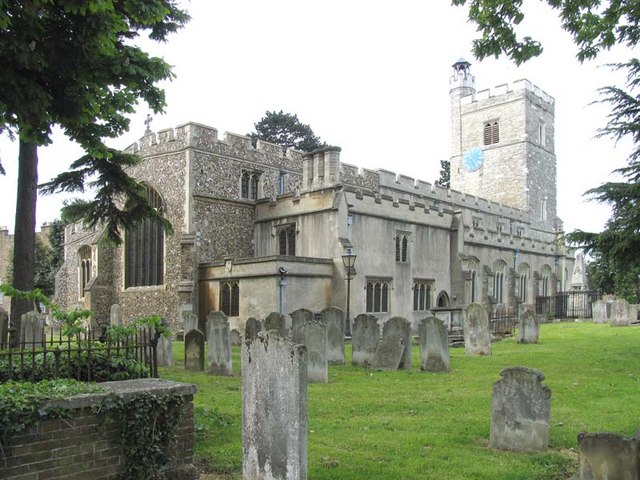
in Hertfordshire, living off the income from his estate in Hursley. He died on 12 July 1712 at the age of 85


Thomas Pengelly (fl. c.1650 – 6 January 1696) was a wealthy British merchant of the 17th century who traded with the Eastern Mediterranean and the Atlantic Seaboard. He owned property in the East End of London, as well as in Finchley and in Cheshunt in Hertfordshire.
Pengelly married Rachel, the daughter of Lieutenant-Colonel Jeremy Baines, a Parliamentary Officer during the Civil War. Their son was to become the judge and Member of Parliament for Cockermouth
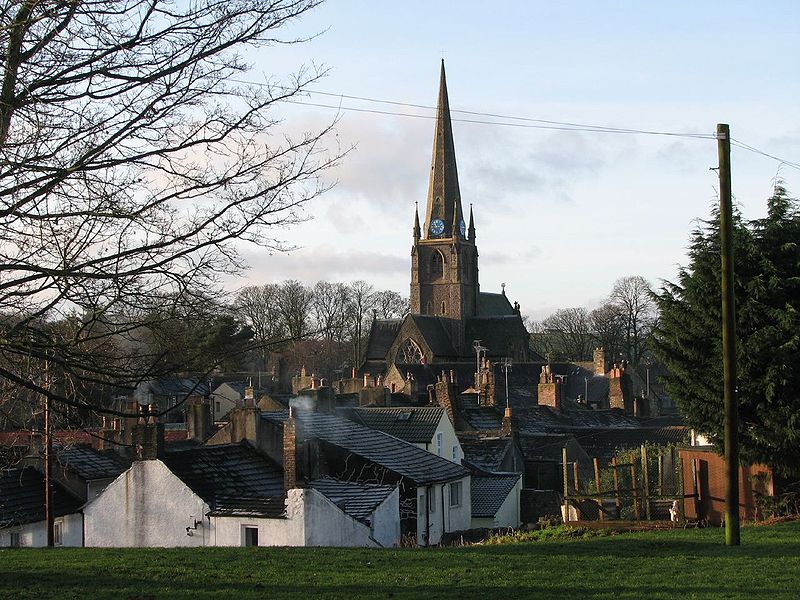
Sir Thomas Pengelly;

he was born in the family's property at Moorfields
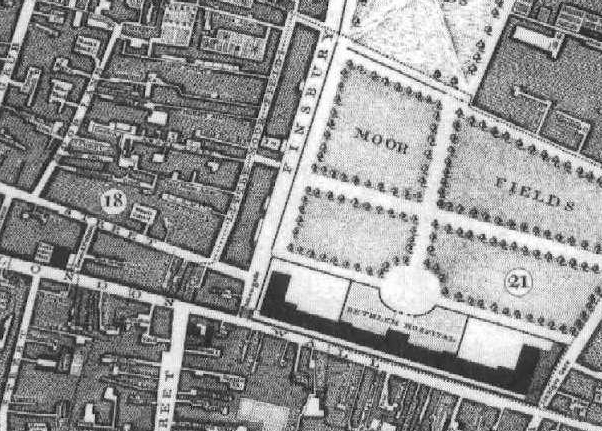
in 1675. By 1683 the family's home in Finchley had provided lodgings for the former Richard after the Restoration of the Monarchy.
On the death of Thomas Pengelly in 1696 Cromwell continued to lodge with Mrs Pengelly, moving with her to her property in Cheshunt in Hertfordshire in 1700
,
and remaining there until his own death in 1712. This arrangement
created a rumour that the younger Thomas Pengelly was Richard Cromwell's
illegitimate son










 These are the last off the moulds.The end of an era.If you want some you can get them here.Leave a message.
These are the last off the moulds.The end of an era.If you want some you can get them here.Leave a message.





 in Essex close to their mother's family home. There is no record of him
attending university. In May 1647, he became a member of Lincoln’s Inn. He may have served as a captain in Thomas Fairfax’s lifeguard during the late 1640s, but the evidence is inconclusive.
in Essex close to their mother's family home. There is no record of him
attending university. In May 1647, he became a member of Lincoln’s Inn. He may have served as a captain in Thomas Fairfax’s lifeguard during the late 1640s, but the evidence is inconclusive.
 During the 1650s they had nine children, four of whom survived to adulthood. Richard was named a Justice of the Peace
for Hampshire and sat on various county committees. During this period
Richard seems to have been a source of concern for his father, who wrote
to Richard Maijor saying “I would have him mind and understand
business, read a little history, study the mathematics and cosmography:
these are good, with subordination to the things of God. Better than
idleness, or mere outward worldly contents. These fit for public
services, for which a man is born”. He fought in none of the English
civil wars.
During the 1650s they had nine children, four of whom survived to adulthood. Richard was named a Justice of the Peace
for Hampshire and sat on various county committees. During this period
Richard seems to have been a source of concern for his father, who wrote
to Richard Maijor saying “I would have him mind and understand
business, read a little history, study the mathematics and cosmography:
these are good, with subordination to the things of God. Better than
idleness, or mere outward worldly contents. These fit for public
services, for which a man is born”. He fought in none of the English
civil wars. , although his younger brother Henry was a member of it. When his father was made Lord Protector in the same year, he was also not given any public role; however, he was elected to the First Protectorate Parliament as M.P. for Huntingdon and the Second Protectorate Parliament as M.P. for Cambridge University.
Under the Protectorate’s constitution, Oliver Cromwell was required to
nominate a successor, and from 1657 he involved Richard much more
heavily in the politics of the regime. He was present at the second
installation of his father as Lord Protector in June, having played no
part in the first installation. In July he was appointed Chancellor of Oxford University, and in December was made a member of the Council of State.
, although his younger brother Henry was a member of it. When his father was made Lord Protector in the same year, he was also not given any public role; however, he was elected to the First Protectorate Parliament as M.P. for Huntingdon and the Second Protectorate Parliament as M.P. for Cambridge University.
Under the Protectorate’s constitution, Oliver Cromwell was required to
nominate a successor, and from 1657 he involved Richard much more
heavily in the politics of the regime. He was present at the second
installation of his father as Lord Protector in June, having played no
part in the first installation. In July he was appointed Chancellor of Oxford University, and in December was made a member of the Council of State.
 Richard eventually gave in to their demands and on 22 April, Parliament was dissolved and the Rump Parliament recalled on 7 May 1659.
Richard eventually gave in to their demands and on 22 April, Parliament was dissolved and the Rump Parliament recalled on 7 May 1659. until July, when he was forced by the Rump to return to Hursley.
until July, when he was forced by the Rump to return to Hursley. Royalists rejoiced at Richard's fall and many satirical attacks surfaced
in which he was given the unflattering nicknames 'Tumble Down Dick' and
'Queen Dick'.
Royalists rejoiced at Richard's fall and many satirical attacks surfaced
in which he was given the unflattering nicknames 'Tumble Down Dick' and
'Queen Dick'.
 who was unaware of who he was. At dinner the prince questioned Richard
about affairs in England and observed – "Well that Oliver, tho' he was a
traitor and a villain, was a brave man, had great parts, great courage,
and was worthy to command; but that Richard, that coxcomb and poltroon,
was surely the basest fellow alive; what is become of that fool? "
Richard replied "He was betrayed by those he most trusted, and who had
been most obliged by his father." Richard departed the following
morning. During this period of voluntary exile he wrote many letters to his family back in England; these letters are now held by Cambridgeshire Archives and Local Studies at the County Record Office in Huntingdon.
who was unaware of who he was. At dinner the prince questioned Richard
about affairs in England and observed – "Well that Oliver, tho' he was a
traitor and a villain, was a brave man, had great parts, great courage,
and was worthy to command; but that Richard, that coxcomb and poltroon,
was surely the basest fellow alive; what is become of that fool? "
Richard replied "He was betrayed by those he most trusted, and who had
been most obliged by his father." Richard departed the following
morning. During this period of voluntary exile he wrote many letters to his family back in England; these letters are now held by Cambridgeshire Archives and Local Studies at the County Record Office in Huntingdon. Thomas Pengelly in Cheshunt
Thomas Pengelly in Cheshunt in Hertfordshire, living off the income from his estate in Hursley. He died on 12 July 1712 at the age of 85
in Hertfordshire, living off the income from his estate in Hursley. He died on 12 July 1712 at the age of 85

 Sir Thomas Pengelly;
Sir Thomas Pengelly; he was born in the family's property at Moorfields
he was born in the family's property at Moorfields in 1675. By 1683 the family's home in Finchley had provided lodgings for the former Richard after the Restoration of the Monarchy.
in 1675. By 1683 the family's home in Finchley had provided lodgings for the former Richard after the Restoration of the Monarchy.